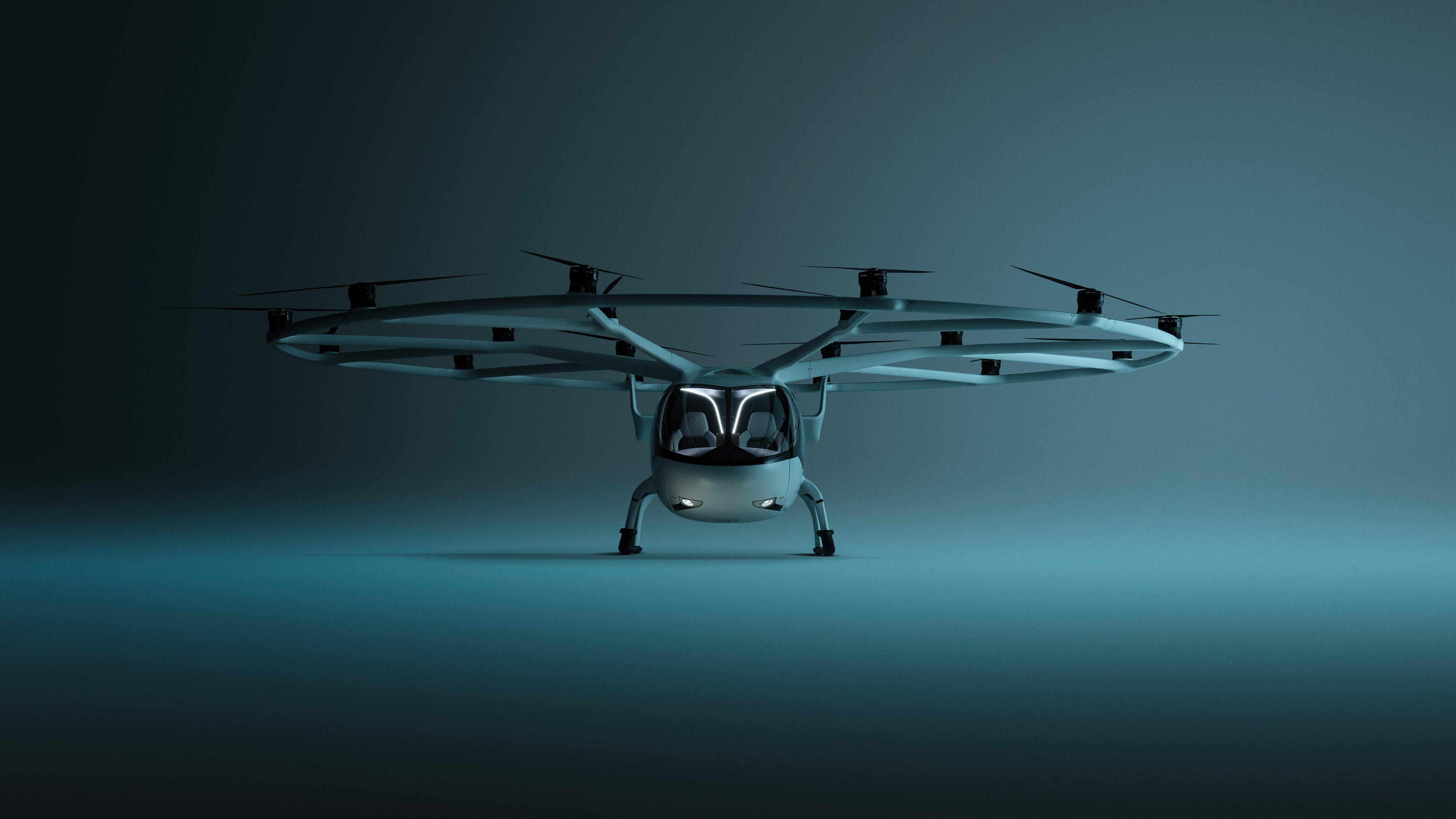Click Here to View This Page on Production Frontend
Click Here to Export Node Content
Click Here to View Printer-Friendly Version (Raw Backend)
Note: front-end display has links to styled print versions.
Content Node ID: 418925
Volocopter has raised a further €200 million ($240 million) through a Series D funding round that it says will be sufficient to get its two-seat, all-electric eVTOL aircraft certified and into commercial service during 2023. New investors in the round include funds managed by BlackRock, Avala Capital, Atlantia S.p.A, Continental AG, NTT, Jericho Capital, and Tokyo Century; some of its earlier backers also support the round.
Announcing the new investments today, the German company said that it has now raised a total of €322 million ($387 million). This is just under one-fifth of the $1.6 billion that Joby Aviation raised last week through a merger-flotation with special purpose acquisition company (SPAC) Reinvent Technology Partners and around one-third of the $1.1 billion that Archer raised through another recent SPAC-backed share flotation.
Volocopter has long been rumored to be a candidate for a merger with a SPAC and likely has had offers to go public through a route that is proving popular with front runners in the cash-hungry advanced air mobility sector. However, unlike its American rivals, it has chosen to stick for now with the mix of international venture capitalists and fund managers that have supported the company since its launch in 2011. It has indicated that it remains open to other investment paths for future capital needs.
The company now describes itself as being in “the final sprint” to completing type certification for the VoloCity aircraft, which it says represents the fifth generation of the design it started almost 10 years ago. Initially, it is seeking approval under EASA’s Special Condition VTOL requirements (an amendment of the existing CS-23 rules), while also working towards concurrent certification by the FAA in the U.S. and also by authorities in Singapore, which is set to be one of the first locations where it will launch commercial services.
Volocopter was the first eVTOL aircraft developer to secure Design Organization Approval from EASA, which validates its ability to start serial production of the aircraft. It also intends to handle all aspects of operations when it enters service.
In addition to air taxi services for passengers, Volocopter envisages applications such as emergency medical support and logistics. It is also working on a cargo-carrying version of the aircraft called the VoloDrone.
Based on current battery technology, the VoloCity will have a range of only around 20 miles and so Volocopter is entirely focusing on urban operations in and around major metropolitan areas. Initially, the aircraft will have a pilot on board, but the company believes there will ultimately be regulatory support for fully autonomous operations.
The group’s business plan covers arrangements for ground and digital infrastructure to support eVTOL aircraft services, which it is addressing with partners through its VoloPort and VoloIQ projects. The company will introduce an application to allow passengers to quickly book flights.
“Volocopter is ahead of the curve in the urban air mobility industry, and we have the achievements to prove it,” said CEO Florian Reuter. “No other electric air taxi company has publicly performed as many flights in cities around the world, with full regulatory approval, as Volocopter has.”
In recent years, the VoloCity has conducted a series of public flight demonstrations as part of development and testing work in locations such as Helsinki, Finland; Stuttgart, Germany; Dubai, UAE; and Singapore. It has committed to launching air taxi services in Singapore and also in Paris, where it is part of a program backed by local authorities to develop advanced air mobility operations around the French capital. The company has also indicated that it intends to break into the U.S. market, as well as launch operations at other locations in Europe and Asia.
The Volocopter team is expected to resume flight testing later this year with the VoloCity prototype, for which it has been conducting validation work on the ground for specific aircraft systems. The company has continued to conduct some flight tests using the earlier 2X prototype.
Existing backers—including automotive groups Geely and Daimler, logistics company DB Schenker, and venture capitalists Intel Capital, Btov Partners, Team Europe, and Klocke Holding—made further investments through the Series D round. The company now has 300 employees at its headquarters near Munich and also in a new office in Singapore.
